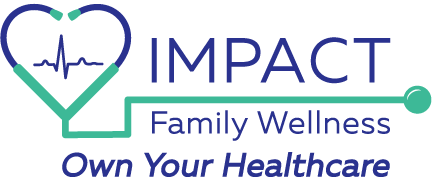Why Primary Care Providers Won't Talk About All Your Health Issues in One Visit
It's common to leave the Primary Care Provider feeling rushed. You arrive with a list, but only discuss a few items. The rest are postponed or forgotten.
That can be frustrating. You may wonder if your concerns are taken seriously.
There's a reason this keeps happening, and it's not because your Primary Care Provider doesn't want to help. Most traditional healthcare systems are built around short visits, packed schedules, and billing rules that leave little room for in-depth conversations. Many Primary Care Providers are doing the best they can within a system that limits the time they can spend with each patient.
In this article, we'll walk through why Primary Care Providers often can't cover everything in one visit, what they are required to share with you (and what they're not), and how the Direct Primary Care (DPC) model gives both patients and nurse practitioners more space to focus on what really matters:
your health.
Why Primary Care Providers Often Can't Cover Everything in One Visit
It's easy to assume that Primary Care Providers can talk about all of your health worries at the same time. But in many cases, that's not how the system works. There are a few key reasons why.
Time Constraints
Most Primary Care Providers working in traditional healthcare systems are only given 10 to 15 minutes per patient. That short time includes listening to your concerns, asking questions, conducting an exam, explaining the next steps, and documenting your notes in your chart.
If you mention issues like fatigue, a rash, and stomach pain, it's too much for a short visit. Primary Care Providers prioritize the most urgent concern and ask you to return for others.
Systemic Pressures
Many Primary Care Providers work in clinics operated by large health systems or insurance networks. These systems often require them to see a certain number of patients each day. Some Primary Care Providers see 20 to 30 people a day, which leaves little time to pause and have a deep conversation.
There are also billing rules that determine what a Primary Care Provider can and cannot discuss during a single visit. Insurance plans typically only cover one issue at a time. If a Primary Care Provider tries to cover too much, the clinic may not get paid, or the patient might get a surprise bill.
This structure puts Primary Care Providers in a tough spot. They have to balance patient care with rules they didn't create.
Emotional Bandwidth
Discussing health concerns, especially those that are serious or complex, requires focus and energy. If a patient presents with multiple problems simultaneously, it can be challenging to give each one the attention it deserves.
Primary Care Providers also avoid causing confusion or anxiety. Dividing information into smaller talks helps patients understand and make more informed decisions.
Legal Responsibility
Primary Care Providers are expected to inform patients of important health information, especially when it affects their treatment. This is called informed consent. But that doesn't always mean covering every single concern in one visit.
In some cases, Primary Care Providers may choose not to share information immediately if they believe the patient isn't ready to handle it or if it might cause harm. This idea is known as therapeutic privilege, and while it's rare, it is sometimes used in serious or sensitive situations.
Still, most Primary Care Providers aim to be honest and open. They aim to provide patients with the information they need to make informed decisions about their care.
Informed Consent vs. Information Overload
Primary Care Providers have a duty to tell you important things about your health. This is called informed consent. It means you should get the information you need to make good choices about your care.
For example, if your Primary Care Provider suggests a new test, medicine, or procedure, they should explain:
- What it is
- Why it needed
- What are the risks
- What other options might you have
This helps you make a choice that feels right for you.
But there's a limit to how much can be shared at once. If a Primary Care Provider tries to explain too many things in one visit, it can become confusing. You might leave unsure about what was said or what steps to take next. That's information overload, and it can actually make care harder.
Primary Care Providers are trained to focus on what matters most at the time. If you have multiple health concerns, they may choose to discuss the most serious one first. That's not to ignore the others; it's to help ensure you fully understand each part of your care.
Every good primary care provider works on this balance between sharing enough and not overwhelming the patient every day.
In most cases, your primary care provider does not keep anything from you. They're just trying to break things down into clear, helpful steps so you feel supported, not rushed or confused.
Learn more about informed consent in healthcare from this AMA Journal of Ethics article.
Why You May Feel Dismissed, And What to Do About It
Sometimes, even after seeing a Primary Care Provider, it can feel like your concerns weren't really heard. Maybe your symptoms were brushed off. Maybe you didn't get a clear answer. Or maybe you felt rushed and didn't get a chance to bring everything up.
That can leave you feeling frustrated or unsure about what to do next.
Why This Happens
There are several reasons why this might happen, and they're not always due to the Primary Care Provider not caring.
Short appointment times are a major factor. With only 10–15 minutes, there's pressure to move quickly. When time is up, Primary Care Providers must prioritize just one or two issues. This doesn't mean your other concerns don't matter; there just isn't time to discuss them all.
Complex symptoms can also be difficult to diagnose in a single visit. If you're feeling tired all the time or experiencing pain that comes and goes, it may take more than one appointment, test, or referral to identify the root cause. This can feel like Primary Care Providers “don't know what's wrong” or aren't trying hard enough, but often, it just takes time.
Bias in the system is another reason. Some patients, especially women, people of color, and those with chronic or invisible illnesses, may not feel fully listened to. Studies have shown that these groups are more likely to have their symptoms downplayed or misread. That's a serious issue, and it's one the healthcare system is still working to fix.
What You Can Do
You have a right to be heard, and there are a few ways to help your Primary Care Provider understand what you're going through:
- Write things down before your visit. Bring a short list of your top concerns. Try to stick to one or two main issues per appointment.
- Be clear and direct. Say what's bothering you in simple terms. Describe how long it's been happening and how it's affecting your daily life.
- Ask questions. If something doesn't make sense, say so. Ask, “What do you think is causing this?” or “What should I watch for?”
- Follow up. If you didn't get to discuss everything, please ask to schedule another visit soon. Some concerns take more than one conversation.
Most Primary Care Providers want to help. However, they may be working within a system that restricts the amount they can accomplish in a single visit. Preparing ahead and speaking up can make a real difference in how your care feels and what you get out of it.
How to Make the Most of a Single Visit
If your Primary Care Provider works in a traditional clinic or through insurance, you're likely dealing with short appointment times and packed schedules. That can make it hard to feel like you're getting the care you need.
While you can't always control how much time you get, there are a few ways to make your visit more effective and focused.
1. Pick Your Top 1–2 Concerns
Before your visit, decide which issue bothers you most. A long list can't be covered in one session. Focusing on your top one or two concerns helps your Primary Care Provider provide more effective answers.
You can say something like:
"I have a few things going on, but the most important one for me today is the chest tightness I've been feeling."
2. Bring Notes or a Symptom Tracker
It's easy to forget things once you're in the room. Writing down your symptoms ahead of time can be helpful. You might track:
- When the problem started
- How often does it happen
- What makes it better or worse
- How does it affect your daily life
Even simple notes can help your Primary Care Provider understand what's going on and what to look for.
3. Ask for Clear Next Steps
If your Primary Care Provider gives you information or advice, ask what the next steps are:
- Do I need a follow-up?
- Should I try a treatment first?
- What if my symptoms don't improve?
Knowing what to expect after the visit helps you feel more in control and less confused.
4. Don't Be Afraid to Speak Up
If you feel rushed or unsure, it's okay to say something. You can ask:
- “Can I schedule another visit to talk more about this?”
- “What can I do in the meantime?”
You deserve to have your concerns taken seriously, even if everything can't be handled in one appointment.
The Direct Primary Care Difference
Many of the problems patients face in regular clinics stem from the way the system is structured: short visits, insurance regulations, and limited access. Direct primary care providers work differently.
In direct primary care (DPC), you pay a monthly fee to your Primary Care Provider for each visit. With this model, Primary Care Providers can spend more time with each patient, focusing on urgent care.
More Time With Your Primary Care Provider
Direct primary care's Nurse Practitioners typically see fewer patients overall, allowing them to offer longer appointments, sometimes lasting 30 minutes, 45 minutes, or even longer. That extra time means you can:
- Talk about more than one issue.
- Ask questions without feeling rushed.
- Work through complex symptoms over time.
There's more room for real conversation, and your Primary Care Provider has more time to think about your health in a deeper way.
Easier Access When You Need It
DPC members often get same-day or next-day visits, and many clinics offer texting, phone calls, or video chats with your Primary Care Provider. You don't need to wait weeks just to talk to someone.
This type of access can help you avoid urgent care visits or ER trips for minor issues, such as infections, rashes, or questions about medications.
You Deserve Better Healthcare
Healthcare shouldn't leave you feeling rushed or unheard. You don't have to settle for care that feels one-sided or limited by time and billing rules.
Direct primary care providers are changing the way care is delivered. With more time, easier access, and a stronger focus on your needs, the experience becomes more personal and less like a checklist.
If you or someone you care about feels overlooked in the traditional healthcare system, take a moment to learn more about membership at Impact Family Wellness. It might be the change you've been looking for.










